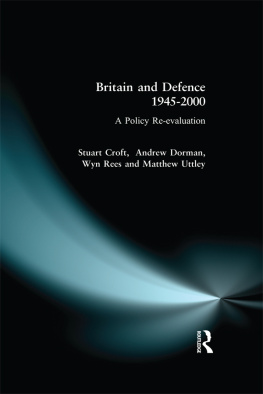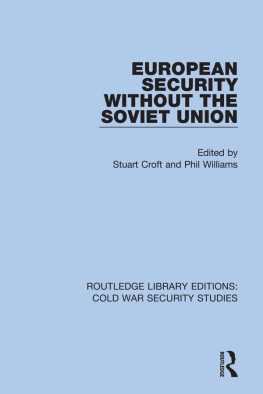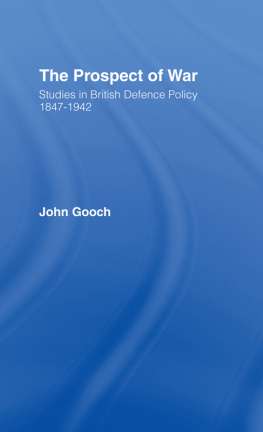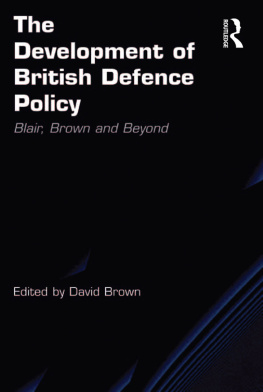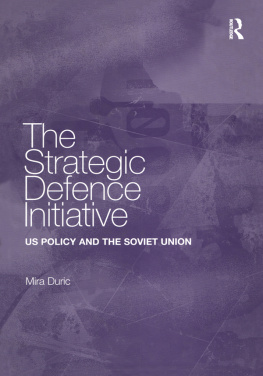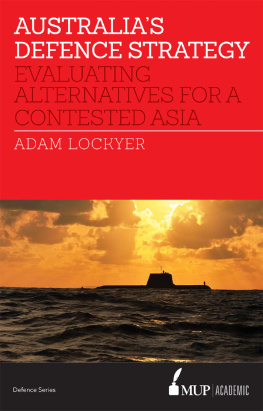First published 2001 by Pearson Education Limited
Published 2013 by Routledge
2 Park Square, Milton Park, Abingdon, Oxon 0X14 4RN
52 Vanderbilt Avenue, New York, NY 10017, USA
Routledge is an imprint of the Taylor & Francis Group, an informa business
Copyright 2001, Taylor & Francis.
The rights of Stuart Croft, Andrew Dorman, Wyn Rees and Matthew Uttley to be identified as authors of this work have been asserted by them in accordance with the Copyright, Designs and Patents Act 1988.
All rights reserved. No part of this book may be reprinted or reproduced or utilised in any form or by any electronic, mechanical, or other means, now known or hereafter invented, including photocopying and recording, or in any information storage or retrieval system, without permission in writing from the publishers.
Notices
Knowledge and best practice in this field are constantly changing. As new research and experience broaden our understanding, changes in research methods, professional practices, or medical treatment may become necessary.
Practitioners and researchers must always rely on their own experience and knowledge in evaluating and using any information, methods, compounds, or experiments described herein. In using such information or methods they should be mindful of their own safety and the safety of others, including parties for whom they have a professional responsibility.
To the fullest extent of the law, neither the Publisher nor the authors, contributors, or editors, assume any liability for any injury and/or damage to persons or property as a matter of products liability, negligence or otherwise, or from any use or operation of any methods, products, instructions, or ideas contained in the material herein.
ISBN 13: 978-0-582-30377-5 (pbk)
British Library Cataloguing-in-Publication Data
A catalogue record for this book is available from the British Library
Typeset in 10/12pt Garamond by 35
Stuart Croft
This volume considers change in British defence policy across more than a fifty year time period. There are four dangers with a project with such a scope. The first danger is that the book becomes overly descriptive, focusing upon narrative to the exclusion of analysis, becoming a far too narrow examination of one aspect of British and/or international politics. The second danger is that change is taken for granted, without there being any clear identification of the sources of change; again, this would encourage description over analysis, and a false presumption of inevitability with hindsight, without understanding the complexity of the issue to the decision-makers of the time. In short, the danger of reinterpreting the past in terms of the present. The third danger is that unless the analysis is conceptually grounded it risks being quickly overtaken by events; that is, themes outlined here should have relevance beyond the time period selected for analysis. The fourth danger is that of too much generalisation, and insufficient attention to details, in the attempt to be comprehensive.
To address these potential pitfalls, this volume will be based upon a clear conceptual framework, one that will be developed in this opening chapter. Five central themes will be identified. First, the epistemological position taken, which will stress the role of the ideational without excluding the material. That is, it is not sufficient to simply focus on Britains declining material power in the period after 1945; rather, what is important is to focus on conceptual prism(s) through which those material factors were interpreted. And those interpretations were often rooted in different political perspectives, making it impossible to allow agreement and consensus.
The second theme to be outlined focuses on the nature of change. Too often in the literature on British politics generally change is taken for granted, or is explained rather too simply. This volume will attempt to examine complex reasons for thinking about change, in part in order to frame discussions about Britains decline. Decline is usually assumed in reviewing Britains relations with the world. In this book, that assumption will be investigated.

